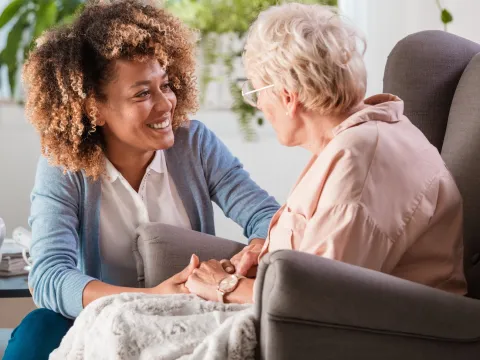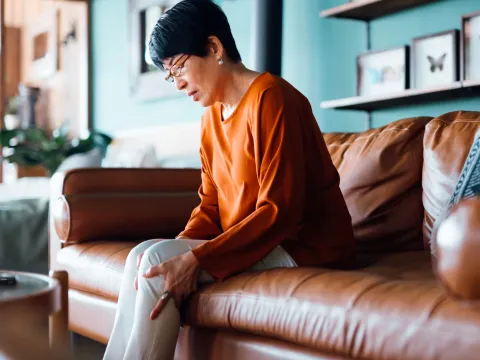- AdventHealth

A cancer diagnosis is life changing and can be overwhelming. From the flood of questions you may have, to decisions that need to be made and the uncertainty that comes with it, you may not know where to begin.
That's where a cancer care coordinator comes in to serve as a personal guide and help you make sense of what's happening and get answers to your questions. At AdventHealth, cancer care coordinators can help you navigate your diagnosis, treatment plan, and beyond.
Below, Christin Hart, RN and urology cancer care coordinator at AdventHealth, explains how cancer care coordinators provide support during a patient's cancer journey.
What are a cancer care coordinators duties?
From the get-go, your care coordinator works to expedite scans and tests, schedule procedures, and set up additional consults.
Patients can be overwhelmed, Hart says. They may be dealing with 10 appointments at one time or have many different things going on at once, so were there as a touch point between them and their physician.
Cancer care coordinators provide education, identify concerns and refer patients and their families to available resources. They also can connect patients with clinical trials or innovative cancer treatments.
Are cancer care coordinators part of the medical team?
Cancer care coordinators have close relationships with physicians so they can stay up to date on a patient's care.
Sometimes the left hand doesn't always know what the right hand is doing, and care coordination can always be really helpful for that, Hart says. Having a go-between is a really nice approach to have, and we can bridge the communication between doctor and patient and avoid any loose ends.
Cancer care coordinators also attend tumor boards, which are meetings between physicians from all aspects of cancer care, including radiology, oncology and surgery.
When the team meets to discuss the best treatment approach, cancer care coordinators gain a firsthand perspective on the patient's health. Knowing what's going on medically helps them work with patients in other aspects of their lives.
Where else can cancer care coordinators help patients?
A cancer care coordinators duties extend beyond providing help with medical and scheduling concerns.
They also stay well-connected with the hospital's social workers to address emotional needs, fears, and frustrations that a patient or family members may have.
Anytime we see the opportunity for emotional support, we work closely with our oncology social workers, Hart says. Sometimes that support may be lending an ear when a patient needs to talk. Sometimes it's more.
What are the advantages of having a care coordinator?
A care coordinator serves as a jack-of-all trades, and is equipped to address many patient needs.
Are cancer care coordinators nurses?
Most care coordinators are registered nurses or nurse practitioners. Because they're familiar with the medical field, they can explain unfamiliar procedures and terminology to patients.
Another benefit of having a cancer care coordinator is they provide patients with an additional resource when the medical team may not be immediately available.
When doctors get busy, it can be hard for a patient to get in touch with them, Hart says. One of the things that patients really enjoy about care coordinators is that they can always connect with us and we respond quickly.
Some patients just need a little more hand holding, and understandably that's when we get involved, Hart says. A cancer diagnosis can be overwhelming, so we're going to do everything we can for our patients.
How can patients connect with cancer care coordinators?
Whether through personal inquiry or if your physician refers you, patients can reach cancer care coordinators at any time during their care.
We have patients come to us who are recently diagnosed, and we have patients referred from outside sources, Hart says. Were as involved as a patient wants us to be. Ideally, we follow them through the whole continuum of care.
Patients interested in finding a care coordinator can set up an appointment through phone or email.



